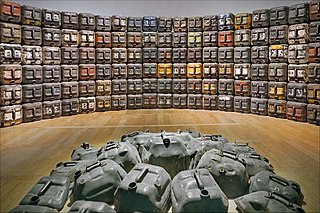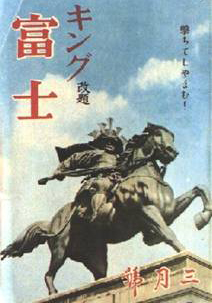Related Research Articles

Half-caste is a term used for individuals of multiracial descent. It is derived from the term caste, which comes from the Latin castus, meaning pure, and the derivative Portuguese and Spanish word casta, meaning race. Terms such as half-caste, caste, quarter-caste and mix-breed were used by colonial officials in the British Empire during their classification of indigenous populations, and in Australia used during the Australian government's pursuit of a policy of assimilation. In Latin America, the equivalent term for half-castes was Cholo and Zambo. Some people now consider the term offensive.
Haunani-Kay Trask was a Native Hawaiian activist, educator, author, poet, and a leader of the Hawaiian sovereignty movement. She was professor emerita at the University of Hawaiʻi at Mānoa, where she founded and directed the Kamakakūokalani Center for Hawaiian Studies. A published author, Trask wrote scholarly books and articles, as well as poetry. She also produced documentaries and CDs. Trask received awards and recognition for her scholarship and activism, both during her life and posthumously.

The Battle of Pagan was fought in 1287 between the Yuan dynasty of China and the Pagan Kingdom of Burma. The invasion ended the Pagan Kingdom, which disintegrated into several small kingdoms.
Transnational feminism refers to both a contemporary feminist paradigm and the corresponding activist movement. Both the theories and activist practices are concerned with how globalization and capitalism affect people across nations, races, genders, classes, and sexualities. This movement asks to critique the ideologies of traditional white, classist, western models of feminist practices from an intersectional approach and how these connect with labor, theoretical applications, and analytical practice on a geopolitical scale.
Prostitution in Myanmar is illegal, but widespread. Prostitution is a major social issue that particularly affects women and children. UNAIDS estimate there to be 66,000 prostitutes in the country.

The University of Hawaiʻi Press is a university press that is part of the University of Hawaiʻi.

Thongchai Winichakul, is a Thai historian and researcher of Southeast Asian studies. He is professor emeritus of Southeast Asian history at the University of Wisconsin–Madison and a chief senior researcher at the Japanese Institute of Developing Economies. He was the president for the Association for Asian Studies in 2013. He has had a major impact on the concept of Thai nationalism.
Barbara Watson Andaya is an Australian historian and author who studies Indonesia and Maritime Southeast Asia. She has also done extensive research on women's history in Southeast Asia, and of late, on the localization of Christianity in the region. She teaches courses in Asian Studies as a full professor at the University of Hawaiʻi at Mānoa, and has served as director of the university's Center for Southeast Asian Studies. She was President of the American Association for Asian Studies from 2005 to 2006.
The Journal of the Burma Research Society was an academic journal covering Burma studies that was published by the Burma Research Society between 1911 and 1980. When it began publication in 1911, the journal became the first peer-reviewed academic journal focused on Burma studies. Over the 69-year period, the journal published 59 volumes and 132 issues, including over 1,300 articles. It was published twice a year at the Rangoon University Estate in both English and Burmese.

Decoloniality is a school of thought that aims to delink from Eurocentric knowledge hierarchies and ways of being in the world in order to enable other forms of existence on Earth. It critiques the perceived universality of Western knowledge and the superiority of Western culture, including the systems and institutions that reinforce these perceptions. Decolonial perspectives understand colonialism as the basis for the everyday function of capitalist modernity and imperialism.
Michael G. Vann is an American historian who serves as Professor of History at California State University, Sacramento. He teaches a range of world history courses, including 20th century world, Southeast Asia, imperialism, and genocide. His research specializes in the history of the French colonial empire, epidemic diseases such as the Third Bubonic Plague Pandemic, and Cold War era mass violence in Southeast Asia. Vann holds a Ph.D. in History from the University of California, Santa Cruz, where he was a student of Tyler Stovall and Edmund Burke III. His dissertation was on the history of white supremacy in French colonial Hanoi. He is a graduate of 'Iolani School in Honolulu, Hawai'i, his home town.
Margaret Anne Jolly, born in Sydney, Australia is an historical anthropologist recognized as a world expert on gender in Oceania. She is professor in the College of Asia and the Pacific and Convenor of the Gender Institute at the Australian National University in Canberra. Jolly is also a Fellow of the Academy of the Social Sciences in Australia.

Kingu was a monthly general interest and entertainment magazine published in Tokyo, Japan, which existed between December 1924 and January 1957. It was the first popular best-selling Japanese magazine. It was also one of two most significant magazines in mid-twentieth century Japan, the other one being Ie no Hikari.
Angela Gweneth Woollacott is an Australian historian who has contributed to the history of the British Empire and Australia. She has written many books and journal articles, as well as a series of Australian history textbooks, served on the editorial boards for Journal of Women's History, Journal of British Studies, and Lilith: A Feminist History Journal, and served on the international advisory board for Settler Colonial Studies. She is a past president of the Australian Historical Association.
Clothing in Myanmar varies depending on the ethnicity, geography, climate and cultural traditions of the people of each region of Myanmar (Burma). The most widely recognized Burmese national costume is the longyi, which is worn by both males and females nationwide. Burmese clothing also features great diversity in terms of textiles, weaves, fibers, colours and materials, including velvet, silk, lace, muslin, and cotton.
J. Kēhaulani Kauanui is an American author, radio producer and professor. She is one of six co-founders of the Native American and Indigenous Studies Association (NAISA). A Kanaka Maoli woman, Kauanui was raised in California. She was awarded a Fulbright (1994-1995) at the University of Auckland in New Zealand where she was affiliated with the Māori Studies department. Her research areas focus on indigeneity and race, settler colonialism, decolonization, anarchism, and gender and sexuality.
Raka Ray is an American sociologist and academic. She is a full-time professor at the University of California, Berkeley in the departments of Sociology and Southeast Asian Studies. She became the Dean of Social Sciences at UC-Berkeley in January 2020. Ray's research interests include gender and feminist theory, postcolonial sociology, emerging middle classes, South Asia, inequality, qualitative research methods, and social movements. Her current project explores changes in the meanings and relations of servitude in India. Ray is also an editor of the publication Feminist Studies.

Jacques Pierre Leider is a French and Luxembourgian historian, teacher and former diplomat.

Tamara Loos is an American historian and gender studies scholar at Cornell University.
The Burmese Women's Association (BWA) was a Burmese women's organization, founded in 1919. It was the first women's organization in Burma, alongside the Young Women's Buddhist Association (YWBA) and the Wunthanu Konmaryi Athin, which were founded in the same year.
References
- ↑ Trude Jacobsen (10 January 2014). "Myanmar. Reconfiguring women, colonialism, and modernity in Burma. By Chie Ikeya. Honolulu: University of Hawai'i Press, 2011. Pp 239. Illustrations, Notes, Glossary, Bibliography, Index". Journal of Southeast Asian Studies. 45 (1).
- ↑ Maurice Oscar Dassah (July 2011). "Book Review: Refiguring women, colonialism, and modernity in Burma". Journal of International Women's Studies. 12 (4).
- ↑ Henk Schulte Nordholt (2012). "Book Review: Refiguring Women, Colonialism, and Modernity in Burma" (PDF). Bijdragen tot de Taal-, Land- en Volkenkunde. 168 (1).
- ↑ Jonathan Saha (June 2012). "Review: Refiguring Women, Colonialism, and Modernity in Burma". South East Asia Research. 20 (2): 291–3. JSTOR 23752543.
- ↑ Hiroko Kawanami (5 November 2015). "Book Review: Refiguring Women, Colonialism, and Modernity in Burma". Southeast Asian Studies. 1 (3).
- ↑ Nick Cheesman (March 2012). "Review: Refiguring Women, Colonialism, and Modernity in Burma". Intersections: Gender and Sexuality in Asia and the Pacific. 28.